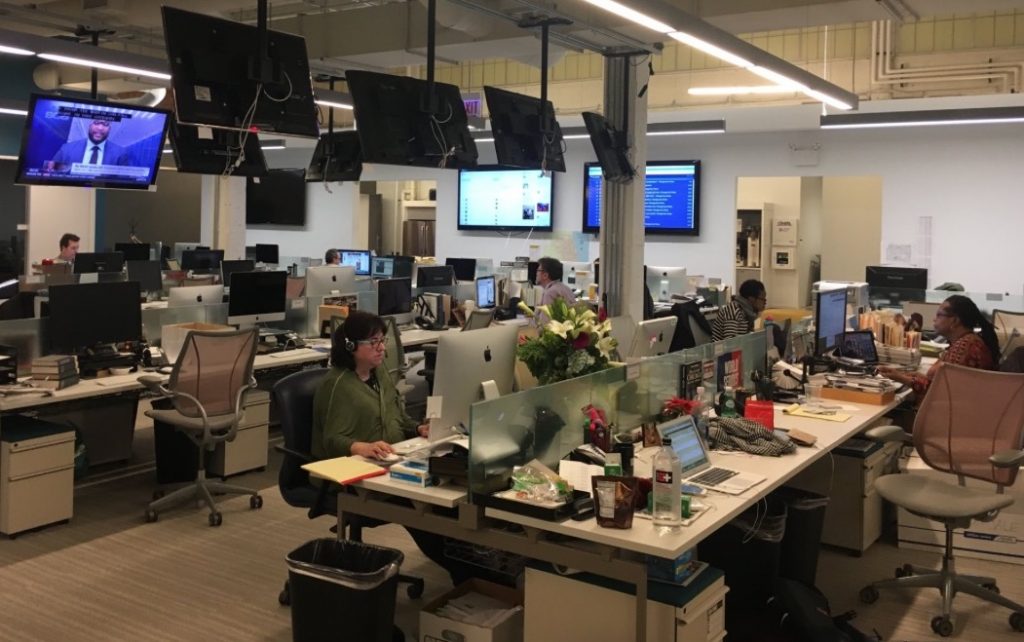Editorial employees of the Chicago Sun-Times approved a new one-year contract this week that provides increased health insurance benefits but no raises in salaries.
By a 39-5 vote, newsroom staffers represented by the Chicago News Guild ratified the agreement, effective September 1. The previous contract expired in December 2017, although it remained in effect while negotiations proceeded with management.
The settlement marked the first deal for Sun-Times employees since the financially ailing paper was acquired in July 2017 by an investment group that includes the Chicago Federation of Labor and affiliated unions.
“I’m happy the members have ratified the new contract,” said Sun-Times CEO Edwin Eisendrath. “The Guild has been a strong advocate for our hard-working journalists and a creative partner as we think through the changes in the industry.”
Acknowledging that the contract provides no pay increases, the union noted that the top minimum salary for reporters — about $1,271 per week after five years’ experience — remains among the highest in the country for papers affiliated with the NewsGuild-CWA. The new deal raises the company’s contribution to family health insurance coverage from $157 per week to $240 per week.
“As health care premiums have escalated, our members have had to foot all the extra costs for many years,” Darel Jevens, Sun-Times entertainment editor and co-chair of the bargaining unit, said in a statement. “The negotiating team made it a priority to achieve some relief in that area, and we're pleased the company agreed to share in these costs more fairly, especially for our members supporting families.”
Covering about 65 employees in the Sun-Times newsroom, the new contract also restricts the company’s right to outsource work performed by Guild members. In addition, members cannot be laid off when their work is outsourced.
Thursday’s comment of the day: Tom Shaer: I had two internships while in college (one TV, one radio) and had dozens of interns work with me during my decades in broadcasting. I always felt the concept of interning was and is a very obvious equal trade: yes, the stations get free labor and the interns get free education that is utterly impossible to get in a classroom. If colleges or universities charge credit-hour tuition or fees for internship credit, then that is a ripoff. Otherwise, it is a good deal for both intern and "employer."





